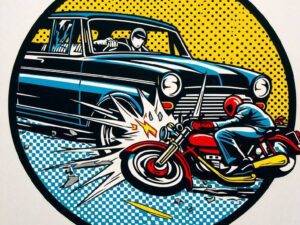The best classic Japanese cars

Fast X, the tenth offering in the high octane Fast & Furious film franchise, will set minds wandering about the cars racing at breakneck speeds through the streets of London, Rome, or some other far-off location.
From American beasts like the Plymouth GTX in The Fate of the Furious and European racers such as the Bugatti Veyron in Furious 7, the vehicles used in the movies vary from muscle cars to sports cars and modified Japanese tuners, such as the iconic Toyota Supra famously driven by the film hero Brian O’Conner.
Got a need for speed? Read our blog about the top 10 American muscle cars.
Here the imported car insurance experts at Adrian Flux identify their top 10 classic Japanese cars.
1. Subaru Impreza 22B STi
This legendary two-door sedan is a widebody version of the STi produced in celebration of Subaru’s 3rd consecutive FIA World Rally Championship win. The Impreza 22B STi has a potent 2.2 turbocharged engine and is styled with flared fenders taken from the rally car, extra vents on the engine hood, and a unique front bumper. Add the modifications you fancy and you’re all set for the starting grid of the next offering in the Fast & Furious film franchise.
2. Honda NSX
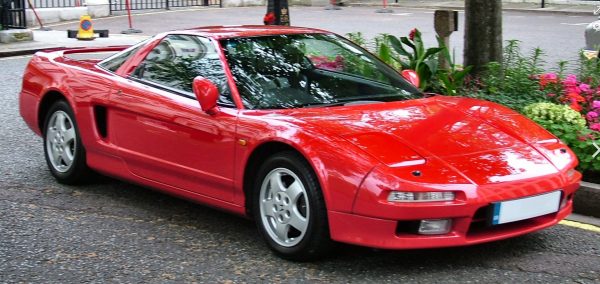
The first-generation Honda NSX, which stands for New Sportscar eXperimental, was a 2-seater, mid-engine sports car manufactured between 1990 and 2005. Pitched against the performance of the Ferrari 328 (and later, the 348) the NSX offered better reliability and was more affordable. Definitely no slouch, the 3.0-litre double overhead cam 24-valve V6 engine could hit 168mph and boasted 0-60 in 5.7 seconds. After studying the F16 fighter jets’ all-round visibility, the car was designed with a “cab-forward” layout while the long tail design enhanced handling and stability.
3. Mazda MX-5
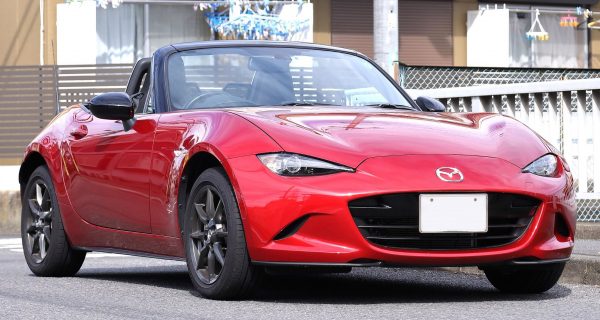
The original MX-5 was launched at a time when small roadsters – such as the MGB, Triumph’s TR7 and Spitfire – had almost disappeared from the market. The lightweight, unibody MX-5 boasts sharp, responsive handling combined with impressive power output and instant acceleration – the rear-wheel drive will take you from 0-60 in 6.7 seconds – which made it popular for amateur and stock racing, autocross, and club racing.
4. Toyota 2000GT
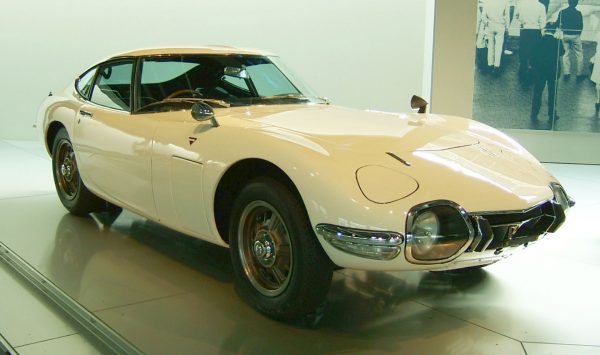
This is another icon created for the Japanese domestic market (JDM) and then exported, loved and adored worldwide. The luxury grand tourer first manufactured in 1963 has become something of a collector’s piece and is much sought after at classic car auctions. At 4175mm, the 2000GT was a foot shorter than the E-type, two inches narrower, and two-and-a-half inches lower, mimicking – and some say improving – the look. The car can go from 0-62 in 8.6 seconds with a top speed of 135mph.
5. Mitsubishi Lancer Evolution VI
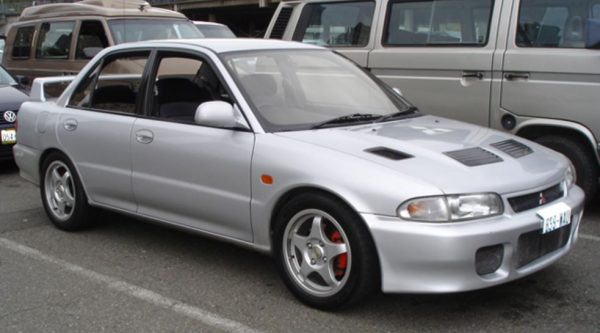
The Evo VI is a road-going version of Mitsubishi’s World Rally Championship winning car, and it’s ridiculously fast. With a turbocharged 2.0-litre engine, big spoilers and lightweight interior, the Evo VI jets from 0-60 in an eye-watering 4.4 seconds and claims a top speed of 155 miles an hour. There are a variety of limited edition models, grey imports, official imports, and ex-rally cars on the secondhand market. If you’re lucky, you might even find the Evo VI Tommi Makinen Edition.
6. Datsun 240Z
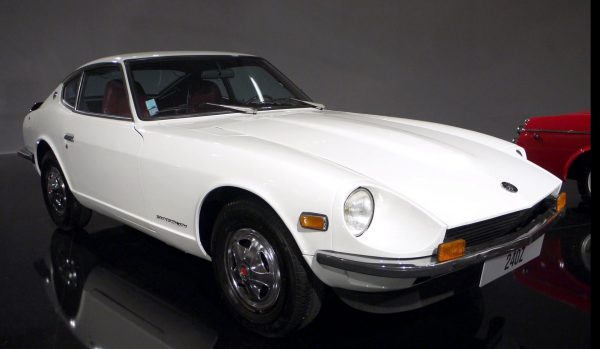
The first 240Z rolled off the Japanese production line way back in 1969, but it’s just as good today as it was more than 50 years ago. Some find the long bonnet and short rear end reminiscent of the Jaguar E-Type, though Datsun’s version is a foot shorter. With no pretensions of being anything other than a two-seater, the 240Z will take you from 0-60 in eight seconds and boasts a top speed of 125mph.
7. Toyota Supra Mk IV
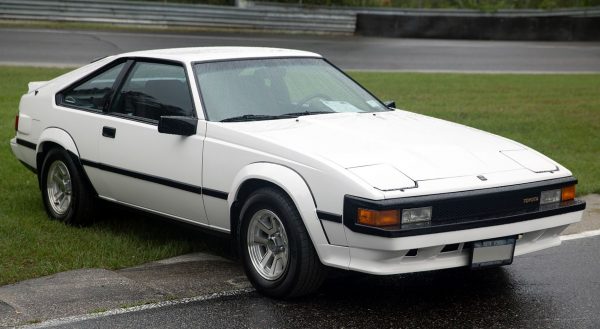
First manufactured in 1978, the name “supra” is derived from Latin and means “above,” “to surpass” or “go beyond.” In terms of looks, the Supra clearly aspires to go beyond. Speed too is impressive, racking up 0-60 in 4.9 seconds and topping out at 160mph. The swift getaway was combined with a Formula One-inspired braking system allowing the Supra Turbo to record a 70mph braking distance of 149ft, the best braking performance of any production car tested in 1997 by Car and Driver magazine. The record wasn’t broken until 2004 by a Porsche Carrera GT, which did it in 145ft.
8. Nissan Skyline 2000 GT-R Hakosuka
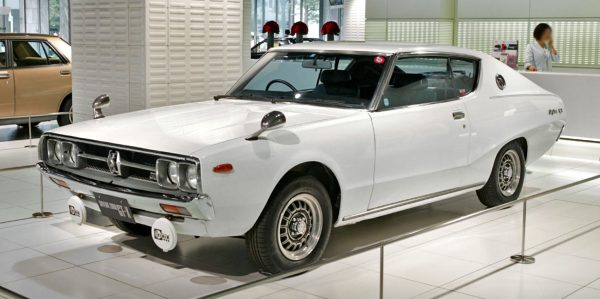
The GT-R Hakosuka boasted a high-revving throaty six-cylinder engine and incredible handling, making it fiercely competitive on the race track. The GT-R was originally a four-door sedan but in March 1971, Nissan introduced a short-wheelbase two-door coupe variant. The term Hakosuka is a combination of the Japanese “hako,” which means box, and “suka,” which means Skyline. The GT-R went through a range of redesigns over the years, but it is still heralded as a legend among JDM classic vehicles.
9. Isuzu 117 Coupe
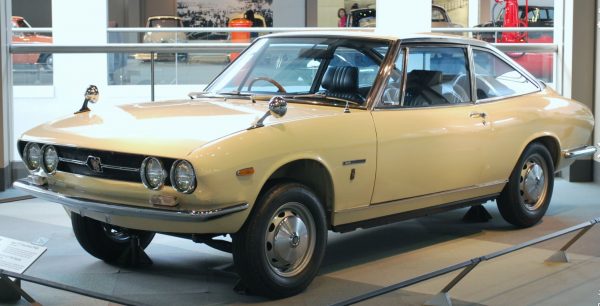
This sleek sports coupe was styled by famed Italian designer Giorgetto Giugiaro. At the time of the 117’s production, Isuzu was a name more associated with dump trucks and diesel buses, but here the company created a beautiful coupe which was fast, comfortable and easy to handle. The 117 was one of the first Japanese cars to offer a 1.6 litre DOHC engine and the first to have electronic fuel injection. The 117’s interior boasted a laurel wood dashboard, leather seats, and headrests, which were something of a rarity at the time.
10. Toyota Celica 190
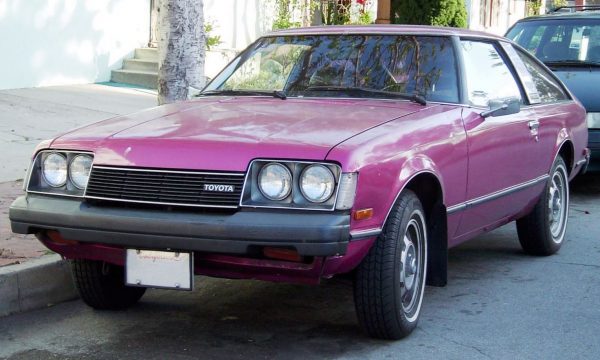
First manufactured way back in 1970, the Celica was billed as the best handling front-wheel drive JDM car on the market. Performance-wise, you could expect 0-60 in just 7.2s and a top speed of 140mph in the Celica 190 variant. The car was never designed with rallying in mind but its speed, handling and impressive braking capabilities make it a fun car for track day adventures. The name derives from the Latin word coelica which means “heavenly” or “celestial,” and the Celica is certainly another star in the Japanese classic car market.
Get affordable insurance for your Japanese import
If you’re considering purchasing a Japanese import, make sure you get affordable insurance that can be tailored to your needs. We understand the particular needs of those who have imported their dream vehicle and are able to offer cover where many others cannot. Call us on 0800 369 8590 for a quote or book a callback at a time that suits you.

